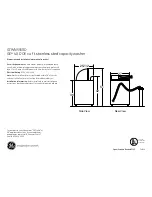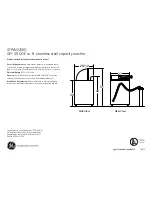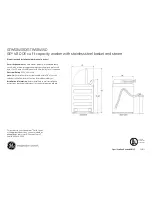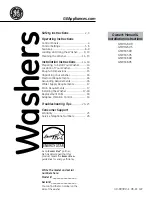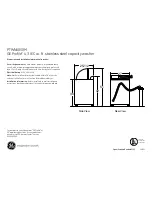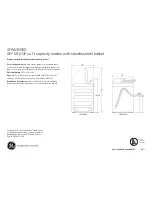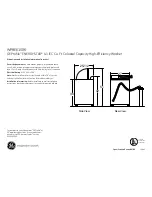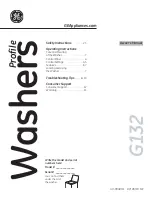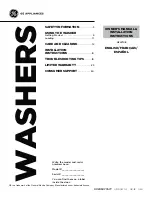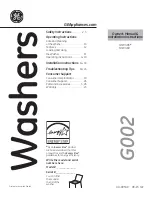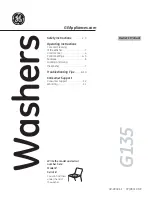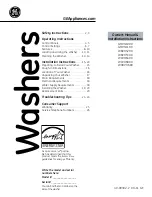
ENGLISH • 9
Warning! Safety signs. Comply with the instructions
provided by the safety signs ted to the appliance. Check
that they are present and legible; otherwise, replacements
in the original positions.
TECHNICAL INFORMATION
ENVISAGED USE
This appliance has been designed for individual use for
the cleaning of vehicles, machines, boats, masonry, etc, to
remove stubborn dirt using clean water and biodegradable
chemical detergents.
Vehicle engines may be washed only if the dirty water is
disposed of as per regulations in force.
f
Intake water temperature: See data plate on
the appliance.
f
Intake water pressure: Below 10 bar.
f
Operating ambient temperature: Above 0 °C.
The machine complies with the IEC.
OPERATOR
The symbol on the front cover identifies the appliance’s
intended operator (professional or non-professional).
MAIN COMPONENTS (Fig. A)
The machine is delivered partially disassembled
in a carton.
1. Lance
2. Gun with safety catch
3. High pressure hose
4. Nozzle
5. Rotating nozzle
6. Adapter
7. Water filter
8. Brackets
9. Detergent kit
10. Nozzle cleaning tool
11. Screws
12. Electric cable with plug
13. Handle
14. Wheels
15. Lever
16. Hose reel
Caution! Safety devices:
f
Starter device (21): The starter device prevents
accidental use of the appliance.
Do not tamper with or adjust the safety valve setting.
f
Safety valve and/or pressure limiting valve:
The safety valve is also a pressure limiting valve.
When the gun trigger is released, the valve opens
and the water recirculates through the pump inlet or is
discharged onto the ground.
f
Thermostat valve (where fitted):
If the water temperature exceeds the temperature
set by the manufacturer, the thermostat valve
discharges the hot water and draws in an amount of
cold water equal to the amount of water discharged,
until the correct temperature is restored.
f
Safety catch (20): Prevents accidental spraying of water
f
Overload cutout: stops the appliance in case of overload.
INSTALLATION (Fig. B)
ASSEMBLY
Caution! All installation and assembly operations must
be performed with the appliance disconnected from the
mains power supply.
The assembly sequence is illustrated in Fig. B.
Assembling the rotating nozzle
The rotating nozzle kit delivers greater washing power.
Use of the rotating nozzle may cause of reduction in pressure
of 25% compared to the pressure obtained with the adjustable
nozzle. However, the rotating nozzle kit delivers greater
washing power due to the rotation of the water jet.
Electrical connection
Caution! Check that the electrical supply voltage
and frequency (V/Hz) correspond to those on the
appliance data plate (Fig. B8).
The appliance should only be connected to a mains power
supply equipped with an adequate earth connection and a
differential security breaker (30mA) to cut off the electricity
supply in the instance of a short circuit.
Use of extension cables: Use cables featuring “IPX5”
protection level. The cross-section of the extension cable
should be proportionate to its length; the longer it is, the
greater its cross-section should be.
Water supply connection
Caution! Only clean or filtered water should be used for
intake. The delivery of the water intake tap should be equal
to that of pump capacity. Place the appliance as close to
the water supply system as possible.
Connection points:
Water outlet (OUTLET)
Water inlet with filter (INLET)
Connection to the mains water supply
The appliance can be connected directly to the mains drinking
water supply only if the supply hose is fitted with a backflow
preventer valve as per current regulations in force. Make sure
that the hose is at least Ø 13mm and that it is reinforced.
Summary of Contents for BW13
Page 47: ......
Page 48: ...05 2020 ...

























